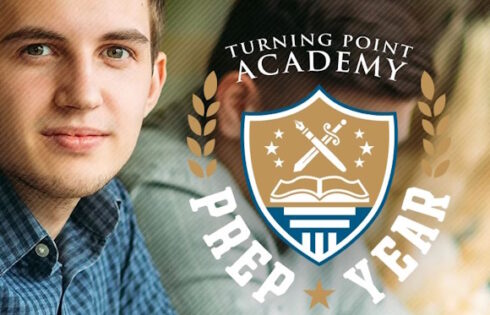
After ditching standardized testing — in part by arguing they advance systemic race inequity — a parade of top universities recently announced they are reinstating the SAT requirement.
Three Ivy League schools — Yale, Brown and Dartmouth — all made the announcement in recent weeks. The University of Texas at Austin joined this month, and the Massachusetts Institute of Technology had already reinstated it in 2022.
After research and study, university leaders state they have found that a student’s future academic success can be measured most accurately with the presence of standardized tests such as the SAT and ACT entrance exams.
“After a few years of being test-optional, colleges have discovered that GPA alone is inadequate to predict college success,” Jeremy Wayne Tate told The College Fix in an email. “Grading varies wildly between different schools whereas a standardized test allows colleges to compare apples to apples.”
Tate is the founder of the Classic Learning Test, a classically liberal alternative to the SAT and ACT, a relatively new standardized test now accepted by more than 200 institutions.
USA Today opinion columnist Ingrid Jacques told The Fix: “Just because something sounds good or ‘equitable’ doesn’t mean it is.”
Jacques wrote a column last month headlined: “Using the SAT, ACT in college admissions isn’t ‘racist.’ What else has the left got wrong?”
“We’ve been told for years that standardized tests like the ones used traditionally for college entrance exams are racist, inequitable and unfair,” she wrote. “Perhaps not.”
“Standardized tests have always been a solid predictor of student success (when combined with other factors), and they offer a consistent measuring device of student preparation, regardless of where they’re from.”
Dartmouth, when it announced in February its decision, had stated the standardized test actually help with diversity.
“Contrary to what some have perceived, standardized testing allows us to admit a broader and more diverse range of students,” the college stated in a news release. “Contextually strong testing clearly enhances the admission chances of high-achieving applicants from less-resourced backgrounds when such scores are disclosed.”
Brown University also announced in a news release similar sentiments, noting “data suggested unintended adverse outcomes of test-optional policies in the admissions process itself, potentially undermining the goal of increasing access.”
Yale echoed similar sentiments.
“Yale’s research from before and after the pandemic has consistently demonstrated that, among all application components, test scores are the single greatest predictor of a student’s future Yale grades,” Yale stated in a news release.
“[W]hen used thoughtfully as part of a whole-person review process, tests can help increase rather than decrease diversity in our class.”
The Ivy League schools stated test scores will only be one factor of many for admissions.
Lee Coffin, Dartmouth’s dean of admissions and financial aid, did not respond to a request from The College Fix seeking comment. Yale’s dean of undergraduate admissions and financial aid, Jeremiah Quinlan, also did not respond. Brown’s spokesman Brian Clark directed The Fix to the university’s news release.
The decision by top-tier universities means others are soon likely to follow, Tate told The Fix.
“Higher education in America tends to follow what the ivy leagues do in nearly every respect,” he said. “Hundreds of colleges will go back to requiring a test within the next few years.”
Indeed, UT at Austin announced on March 11 that it would reinstate its SAT and ACT mandate.
“Knowledge of standardized test scores contributes to higher graduation rates,” UT stated in a news release. UT referred requests for comment to its news release.
Even before the Ivy Leagues, MIT began requiring standardized testing.
“Our research shows standardized tests help us better assess the academic preparedness of all applicants, and also help us identify socioeconomically disadvantaged students who lack access to advanced coursework or other enrichment opportunities that would otherwise demonstrate their readiness for MIT,” the school said in a 2022 news release.
MIT referred requests for comment to a Q&A with its dean of admissions and student financial services.
Robert Bortins, CEO of the classical education program Classical Conversations and board member of Tate’s CLT, told The College Fix that “in its original and proper intent standardized test results can help pair colleges and students in a way that will help both be successful.”
“The ACT and SAT have changed their tests in a way that [has] inflated scores that makes it difficult for universities to use those tests to accurately understand student readiness,” Bortins said.
“The looming college cliff due to the lack of children being born during the 2008 crisis means that colleges need to find new ways to stand out and attract students that will be successful at their institutions,” Bortins said.
Jacques, in her email to The Fix, put it this way: “Requiring the SAT/ACT puts all students on an equal footing and is one of the best predictors of college success.”
MORE: American Bar Association votes to make LSAT optional for law school
IMAGE: Kali9 Canva Pro72
Like The College Fix on Facebook / Follow us on Twitter






Please join the conversation about our stories on Facebook, Twitter, Instagram, Reddit, MeWe, Rumble, Gab, Minds and Gettr.